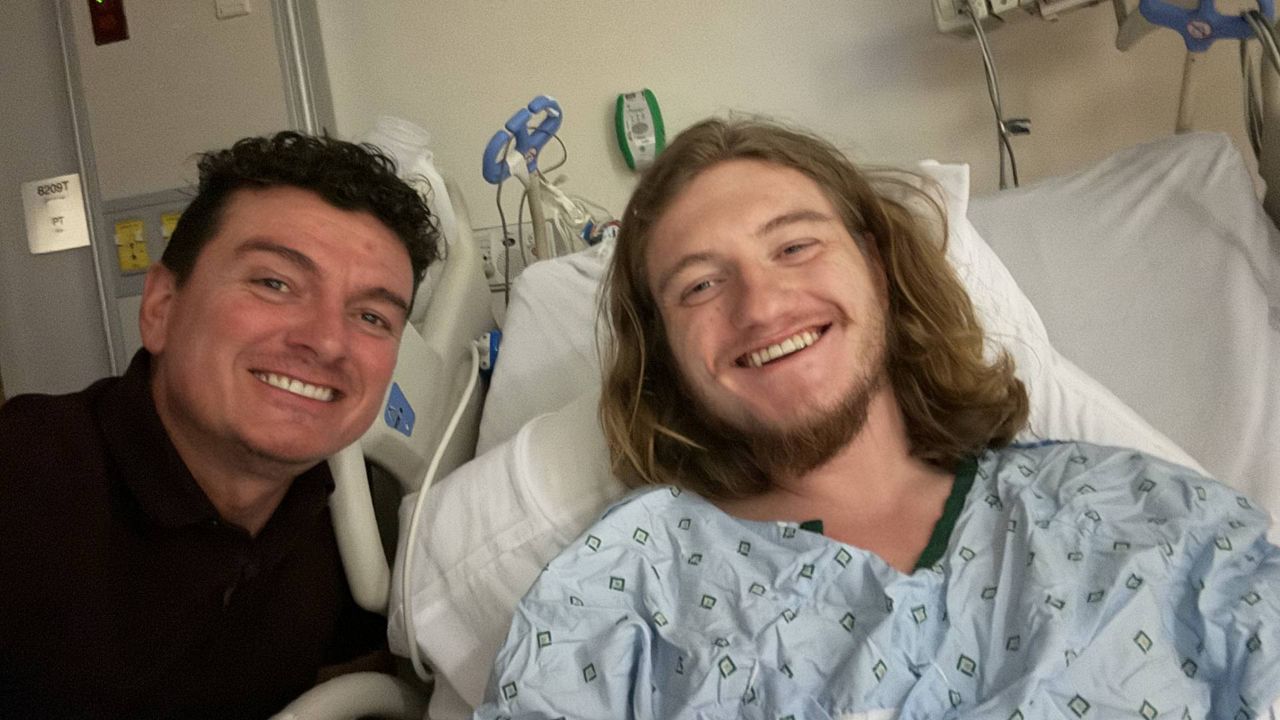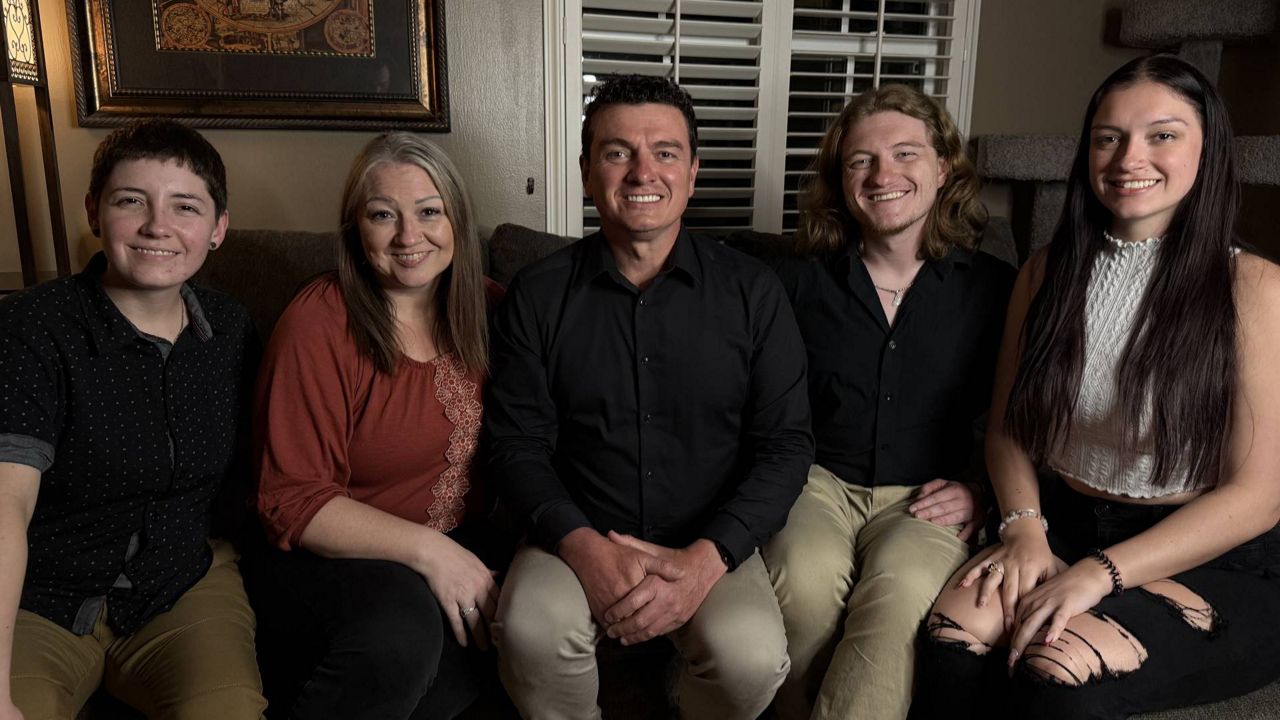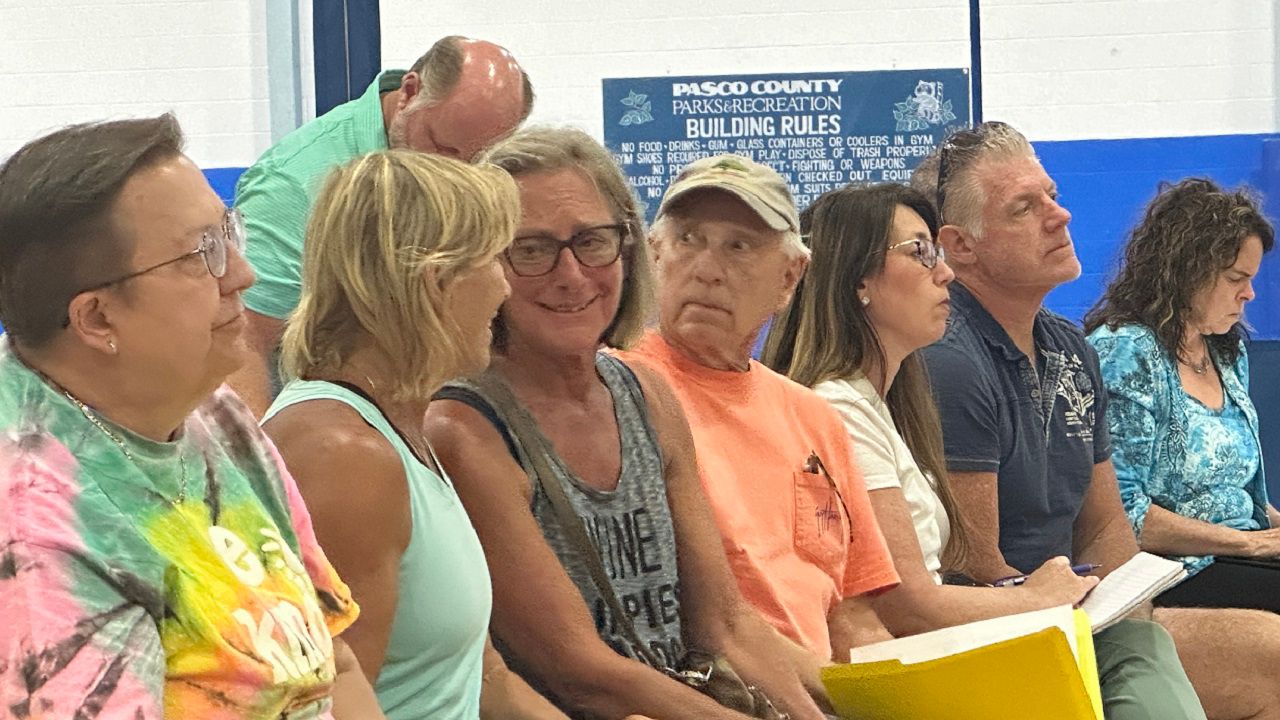TAMPA, Fla. — Every few months, Clay Emerton makes his way to Dr. Shalin Shah's office. He goes to get his heart defibrillator checked.
"This pulls up information from his pacemaker so I can see if he has had any arrhythmias," said Shah, a Cardiac Electrophysiologist at BayCare’s St. Joseph’s Hospital.
This doctor-patient check-ins began because when Clay was 42, he ended up in the ER with ventricular tachycardia, a condition in which the heart beats too fast.
"I heard I was shocked like 15 or 16 times, actually. And they had the clergy come out. I almost didn't make it," said Clay.
His heart had almost failed him out of the blue. To figure out why, Dr. Shah ordered some tests.
“We ended up doing a genetic test where they checked all the cardiology genes. And that came back with something called DSP," said Clay.
“It's a specific gene, which can lead to a condition called Arrhythmogenic Right Ventricular Dysplasia, ARVC," said Shah. "And that can increase the chances of unexpected sudden cardiac arrest."
Dr. Shah said the condition is rare, but also genetic. Clay immediately thought of an uncle who had suddenly passed away at 41 years old.
“And then, of course, I thought of my kids," said Clay. "And so we did our genetic testing. Yes, (my son) came back positive and so did Kayla, my oldest daughter."

His kids are in their 20s. This rare disease usually doesn't affect women until their 70s, and men their 40s.
“It didn't affect me until I was in my early forties, I thought, 'Well, they have plenty of time,'" said Clay. "That was not the case."
At 26, his son, Andrew Emerton, went into sudden cardiac arrest. He would have died if he hadn't been near friends.
"I'm on their couch, I'm playing a video game, I'm smiling, I'm mid-sentence and I fall on my face and turn blue," said Andrew.
That was October 2024. Clay remembers speaking to an ER doctor in Gainesville, as he raced to the hospital to see his son.
“She said, 'Anyone who loves him needs to get down here right now, need to drop everything they're doing and get down here right this minute,'" said Clay. "So we didn't have any time in her mind. She wasn't sure if he would make it through the night."

Andrew did survive, and a week later, he had a TB ICD defibrillator put in his chest. Clay has the same in his chest, too.
Andrew said in January, that small device saved his life.
"I wasn't active. I wasn't running around like my heart rate was. It jumped from 65 to 350 and one beat," said Andrew.
This time, he was alone, talking on the phone with a friend. The defibrillator did its job, correcting his heart's rapid beating.
“So if you do the math, that's actually a 1% chance that we both make it. Yeah, that's pretty nuts. We feel pretty lucky, for sure," said Andrew.
Luck and good doctors.
“We don't fully understand the implications of each and every mutation. But we do know how to protect the high-risk patients by implanting defibrillators," said Shah.
As for Clay's other child with the gene, Kayla, she has thankfully not experienced any scares.
"They're doing diagnostic tests on her, actually. So they've had an echocardiogram. She's about to have a cardiac MRI," said Clay.

They hope she will never go through what her father and brother have miraculously survived. But just in case, they will keep in close touch with BayCare Heart and Vascular Institute.











_crop)